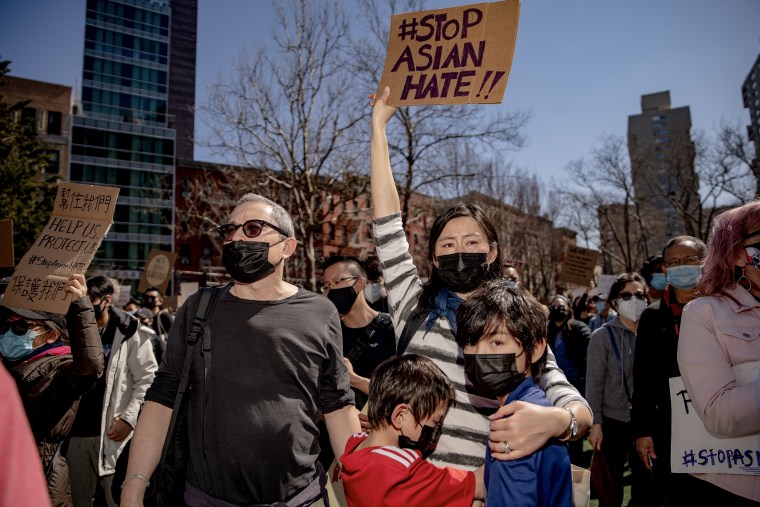A new poll released on Wednesday revealed that most potential 2024 voters in battleground states believe that politicians’ use of anti-China rhetoric was responsible for the previous spike in violence toward Asian Americans.
The results of the survey, conducted by the National AAPI Power Fund, is proof that voters “see through the scapegoating,” EunSook Lee, director of the organization, said.
“The work of communities around the country has been significant enough that there’s a recognition that there have been cases of violence against Asian Americans,” Lee said. “We need to see a decrease in inflammatory rhetoric.”
The poll, which was conducted in September, surveyed 900 likely 2024 general election voters across eight battleground states including Georgia, Nevada and Pennsylvania, in addition to California. It showed that 61% of likely voters believe politicians’ anti-China rhetoric, casting the country as an economic and national security threat, contributed to anti-Asian violence.
The study also included surveys from Lake Research Partners that showed participants want to “hear solutions and not place blame,” Joshua Ulibari, partner at the research firm, said in a news release.
“It’s important that candidates and organizations know that anti-China rhetoric doesn’t foster any short-term or long-term gains,” Ulibari added. “Candidates can and have won without pointing fingers at China or skirting responsibility for inflation and job creation.”
Additionally, a majority of participants said they recognized that the U.S. and China need to work together in pursue of global stability and a stronger global economy. Most also indicated that they are turned off by messaging that is either “too antagonistic or too accommodating” toward China.
Given the country’s history of racism toward Asian Americans and the rising tensions between the U.S. and China, Lee said many are concerned that that segment of the population is once again on the receiving end of the hostility between the two countries.
“It was the Japanese Americans that were targeted during World War II,” Lee said. “We see that also when Russia is targeted, people don’t go after Americans of Russian descent. But in the case of Asians, we know that it’s a little bit different.”
FBI data released in October showed that anti-Asian hate crimes decreased 33% from 2021 to 2022, the first recorded drop since the start of the pandemic. But experts warned that the dip is likely just part of a “cyclical” pattern. With the presidential election cycle drawing closer, they said they expect the number of hate crimes to potentially increase as candidates default to anti-Asian rhetoric and policy proposals to draw votes.
“We know that anti-China rhetoric doesn’t just affect Chinese people. It affects Asian Americans because the public can’t distinguish between someone who’s Chinese and someone who’s not,” Stephanie Chan, director of data and research at the nonprofit Stop AAPI Hate, said. “We’ve seen how the political rhetoric then translates into even what people mimic and say when they are committing a hate act. So we are definitely bracing for that.”
